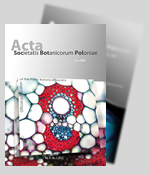Abstract
The viability of desiccation-intolerant sycamore (Acer pseudoplatanus L.) seeds during desiccation was investigated by tetrazolium and by a germinability test, together with membrane permeability and membrane phospholipid composition. Loss of viability was associated with an increase of solute leakage, reduced content of all phospholipid groups, decrease of unsaturated fatty acids and the unsaturated/saturated fatty acids ratio. Growth of malondialdehyde content was also observed. Some results were compared with those for tolerant to desiccation Norway maple (Acer platanoides L.) seeds. The results indicate active participation of membranes in the desiccation process in tolerant seeds and their decomposition in intolerant ones. The destruction of membranes was the result of lipid peroxidation, probably due to the free radical effect.
Keywords
Acer pseudoplatanus; Acer platanoides; dehydration; membranes; electrolyte leakage; fatty acids; phospholipid; lipid peroxidation; malondialdehyde







